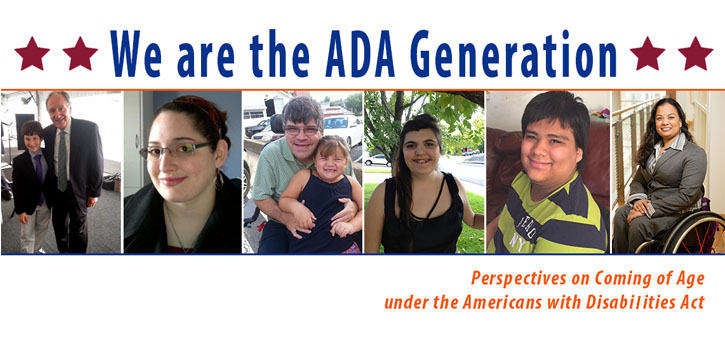Over 25 years, the Americans with Disabilities Act (ADA) has positively impacted the lives of millions of Americans and created a new generation as part of its legacy, the ADA Generation. This generation comprises youth and young adults with disabilities who came of age under the aegis and opportunity of the ADA. The oldest of the ADA Generation are now in their early and mid-20s. Many are going to college or graduate school. Many are working in a wide variety of professional fields. And many are continuing the important work of advocacy, ensuring the continued promise of the ADA, fighting ongoing discrimination, and guaranteeing opportunity for generations of Americans to come.
In celebration of the 25th anniversary of the ADA and the contribution and impact of the ADA Generation, IEL has collected stories from youth and young adults with disabilities who grew up under the ADA. These stories are personal narratives, reflections, and demonstrations of the importance of the ADA in people’s lives. IEL received stories from youth, young adults, allies, and even entire organizations that are focused on promoting the rights and independence of people with disabilities. The 14 stories showcase the achievements of youth and young adults with visible and invisible disabilities and serve as a reminder of the tremendous impact and importance of the ADA. Eight of stories come from individuals and organizations connected to IEL and its work and networks.
“The Institute for Educational Leadership has a long history of supporting youth transitioning to adulthood. For youth with disabilities, a core competency in the youth development process is gaining an understanding of disability history, culture, and public policy, as well as their rights and responsibilities. We started this project, because we wanted to celebrate the ADA, but we also wanted to provide an opportunity to hear from this important group of young people and share their experiences with others,” said Curtis Richards, disability advocate and expert and director of IEL’s Center for Work for Workforce Development.
